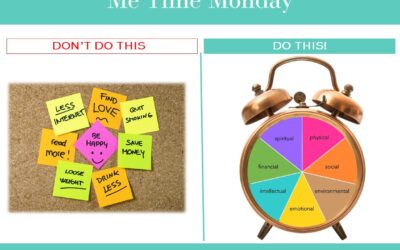 I recently celebrated my birthday and it got me to thinking about our “real age.” Whenever I meet a friend for coffee the conversation now turns to our latest health issue (we are at that age) – hurt knees from running, migraines from changing hormones, sun spots on our face, wrinkles on our foreheads, and intestinal rumblings from last night’s Mexican food. And, when the bill comes, we all hold the check back about 12 inches so we can read it (always forgetting the reading glasses which are now common among my friends). However, we marvel at how we don’t see ourselves as our real age – and as friends we even comfort each other that we certainly don’t look our real age either.
I recently celebrated my birthday and it got me to thinking about our “real age.” Whenever I meet a friend for coffee the conversation now turns to our latest health issue (we are at that age) – hurt knees from running, migraines from changing hormones, sun spots on our face, wrinkles on our foreheads, and intestinal rumblings from last night’s Mexican food. And, when the bill comes, we all hold the check back about 12 inches so we can read it (always forgetting the reading glasses which are now common among my friends). However, we marvel at how we don’t see ourselves as our real age – and as friends we even comfort each other that we certainly don’t look our real age either.
As we grow older and start to care for aging parents, what is our risk as caregivers for being “older” than our real age because we often neglect our own health and wellness needs?
Real Age Calculator
If you want to take the scary leap with me (make sure you put your knee brace on first) – there is an online calculator developed by the now well-known authors of You – The Owner’s Manual books, Dr. Mehmet Oz and Dr. Michael Roizen. It is called the Real Age Test and it takes about 15 minutes to complete the online questionnaire. Be prepared – it will ask you about your cholesterol levels, blood pressure reading, eating habits, fitness routine, sleep patterns, etc.
What you get is an estimated “age” based on your health and wellness answers as well as tips on how to improve your age score (meaning scoring younger than you really are) in the various areas.
Advice to Caregivers – Don’t Act Your Age
What struck me as I took the test was that so much of what is truly good for our bodies, our minds and our souls are things most of us did when we were kids. When I recently interviewed Joan Lunden, who cares for her 93-year-old mother, she told me that she tries to find her “inner child” when I asked her how she finds her “Me Time.”
While all childhoods are not alike, here are my 8 Tips to Caregivers on how to tap into the kid you once were and embrace that youthful, carefree time once again that will improve your health and wellness:
 1. Naptime: Health experts say we should get 7-8 hours per night. A study showed that sleeping too little or at odd hours can increase your risk for diabetes and obesity because lack of sleep messes up your insulin levels and slows your metabolism. In one study, getting only 5.5 hours of sleep a night translated into 12 extra pounds a year. Remember taking naps as a kid and going to bed at 9pm? Try to plan your naps and bedtime as if you were nine-years-old again.
1. Naptime: Health experts say we should get 7-8 hours per night. A study showed that sleeping too little or at odd hours can increase your risk for diabetes and obesity because lack of sleep messes up your insulin levels and slows your metabolism. In one study, getting only 5.5 hours of sleep a night translated into 12 extra pounds a year. Remember taking naps as a kid and going to bed at 9pm? Try to plan your naps and bedtime as if you were nine-years-old again.
 2. Bath time: Remember how we used to hate taking baths as a kid? Well, as a stressed out adult caregiver, baths are a luxurious dream for which you typically don’t have time. Baths – especially those taken with Epsom salts and fragrant oil like lavender – help reduce stress, improve circulation and aid relaxation. A study done in Japan showed that the stress relief from baths helps you fight colds through vascular and lymph system stimulation which encourages bacteria-destroying properties in the immune system. Take 10 minutes for a bath at least three times a week and don’t forget the rubber ducky.
2. Bath time: Remember how we used to hate taking baths as a kid? Well, as a stressed out adult caregiver, baths are a luxurious dream for which you typically don’t have time. Baths – especially those taken with Epsom salts and fragrant oil like lavender – help reduce stress, improve circulation and aid relaxation. A study done in Japan showed that the stress relief from baths helps you fight colds through vascular and lymph system stimulation which encourages bacteria-destroying properties in the immune system. Take 10 minutes for a bath at least three times a week and don’t forget the rubber ducky.
 3. Playtime: It sounds silly but playtime can actually help caregivers avoid the burn-out they so often face. While escaping to summer camp may not be feasible, riding your bike, finding a local summer fair to ride the carousel or roller coaster, or jumping into your backyard or local community pool (doing your best cannonball!) can give you the mental health break you need. Find a few minutes every day or at least once a week to “play.”
3. Playtime: It sounds silly but playtime can actually help caregivers avoid the burn-out they so often face. While escaping to summer camp may not be feasible, riding your bike, finding a local summer fair to ride the carousel or roller coaster, or jumping into your backyard or local community pool (doing your best cannonball!) can give you the mental health break you need. Find a few minutes every day or at least once a week to “play.”
 4. Outdoor Fun and Sun: 10 minutes of sunshine a day is enough to boost your natural levels of Vitamin D (which promotes calcium absorption needed for strong bones) that have been proven to aid prevention of health risks such as diabetes, multiple sclerosis, cancer, allergies and osteoporosis. In addition, sunshine boosts your mental health – brain functionality and optimism all improve with increased levels of Vitamin D. In fact, one study in the Journal of Finance found that stocks traded on sunny days were more profitable than those on cloudy days.
4. Outdoor Fun and Sun: 10 minutes of sunshine a day is enough to boost your natural levels of Vitamin D (which promotes calcium absorption needed for strong bones) that have been proven to aid prevention of health risks such as diabetes, multiple sclerosis, cancer, allergies and osteoporosis. In addition, sunshine boosts your mental health – brain functionality and optimism all improve with increased levels of Vitamin D. In fact, one study in the Journal of Finance found that stocks traded on sunny days were more profitable than those on cloudy days.
 5. Seashells by the seashore: One of my favorite childhood memories is collecting seashells along the beach with my mom and brother. We would walk for what seemed like miles to find special colors and shapes. Since heart disease is the No. 1 killer of women, walking 30 minutes every day gives you the cardiovascular exercise you need to keep your heart healthy according to the American Heart Association. If you don’t live near the beach, find a hiking trail or just take a brisk stroll through the neighborhood.
5. Seashells by the seashore: One of my favorite childhood memories is collecting seashells along the beach with my mom and brother. We would walk for what seemed like miles to find special colors and shapes. Since heart disease is the No. 1 killer of women, walking 30 minutes every day gives you the cardiovascular exercise you need to keep your heart healthy according to the American Heart Association. If you don’t live near the beach, find a hiking trail or just take a brisk stroll through the neighborhood.
 6. Daydream: Remember lying on your back and looking up into the clouds deciding which shapes you could find? A lion, a car, or even hearts? If you can find a patch of ground – whether it is your backyard or your neighborhood park, take a few minutes each week to just lie on your back and watch the clouds scroll by (or forget the clouds and just lie on your back in your living room – no TV, no music, no external disturbances allowed). It is a variation of meditation that ensures you have the mental stamina to keep going as a caregiver.
6. Daydream: Remember lying on your back and looking up into the clouds deciding which shapes you could find? A lion, a car, or even hearts? If you can find a patch of ground – whether it is your backyard or your neighborhood park, take a few minutes each week to just lie on your back and watch the clouds scroll by (or forget the clouds and just lie on your back in your living room – no TV, no music, no external disturbances allowed). It is a variation of meditation that ensures you have the mental stamina to keep going as a caregiver.
 7. Laugh: Charlie Chaplin said, “A day without laughter is a day wasted.” Being a caregiver is nothing to laugh about – it can take a toll on you that is physical, emotional and financial. But finding the funny bone in caregiving can get you through the day. My mom told me that when she was caring for my grandma after a stroke, they both slipped as she was transferring her from wheelchair to bed. Rather than be sad or upset, they both sat on the floor laughing at the absurdity of the situation. One study showed that laughing is a mini workout – it burns calories, increases your heart rate and sends more oxygen to your tissues. Maybe laughter is the best medicine.
7. Laugh: Charlie Chaplin said, “A day without laughter is a day wasted.” Being a caregiver is nothing to laugh about – it can take a toll on you that is physical, emotional and financial. But finding the funny bone in caregiving can get you through the day. My mom told me that when she was caring for my grandma after a stroke, they both slipped as she was transferring her from wheelchair to bed. Rather than be sad or upset, they both sat on the floor laughing at the absurdity of the situation. One study showed that laughing is a mini workout – it burns calories, increases your heart rate and sends more oxygen to your tissues. Maybe laughter is the best medicine.
 8. Hold hands: Remember the first time you held hands with someone you liked? Your heart beat faster, your oxytocin levels (“cuddling hormone”) surged and a warm feeling of happiness came over your whole body. The National Alliance for Caregiving found that most caregivers feel all alone and 10 percent of caregivers who reported a decline in their health had turned to alcohol or prescription drugs to cope with their stress. Hand-holding can be the prescription caregivers need. A University of Virginia study showed that wives who held the hands of their spouse or a friend reduced their stress levels. Reach out physically to a friend or family member or virtually such as through the help of the online site Lotsa Helping Hands that can connect your volunteer community to get you the break to do all the things above.
8. Hold hands: Remember the first time you held hands with someone you liked? Your heart beat faster, your oxytocin levels (“cuddling hormone”) surged and a warm feeling of happiness came over your whole body. The National Alliance for Caregiving found that most caregivers feel all alone and 10 percent of caregivers who reported a decline in their health had turned to alcohol or prescription drugs to cope with their stress. Hand-holding can be the prescription caregivers need. A University of Virginia study showed that wives who held the hands of their spouse or a friend reduced their stress levels. Reach out physically to a friend or family member or virtually such as through the help of the online site Lotsa Helping Hands that can connect your volunteer community to get you the break to do all the things above.
Becoming a caregiver is a huge responsibility but taking the time to embrace your inner child will help you find the balance you need between caring for yourself and caring for your loved one.




As a young caregiver, I really appreciated this article. Very apt and to the point. One of the things is life after caregiving. If the caregiving ends while still young, there is an entire life ahead of you. It was difficult to find support in same age groups while caregiving and it changes you permanently. And it’s difficult to find people in same age group while young after caregiving who may have a similar experience. It’s like your mental age is not in sync with your physical age.
Thank you so much for your comments and you are so right – we need better support for all caregivers specific to their situation and young caregivers need this help as much or more than most caregivers. I applaud you for providing care at a young age – you have to grow up sooner than you should and sometimes miss out on the “carefree” nature of childhood. We will have an upcoming blog about “young caregivers” – more than 1 million children under age 18 caring for older loved ones and also about siblings caring for siblings (who are typically younger caregivers). If you don’t mind I am going to post your comment to our Caregiving Club Facebook site with recommendations for young caregivers to check out the Caregiving Youth Project which is providing more support to young caregivers.
Many Thanks for writing Your Real Age –
8 Tips to Help Caregivers Find Their Inner Child, I actually was researching for something similar and was grateful to find the information
from this specific post.
Thank you for responding to that blog – I really loved writing it and it was such an epiphany for me – by doing things we loved as children we benefit from the physical activity and more importantly – free our minds for even a few minutes of the all the overwhelming adult responsibilities in our lives!